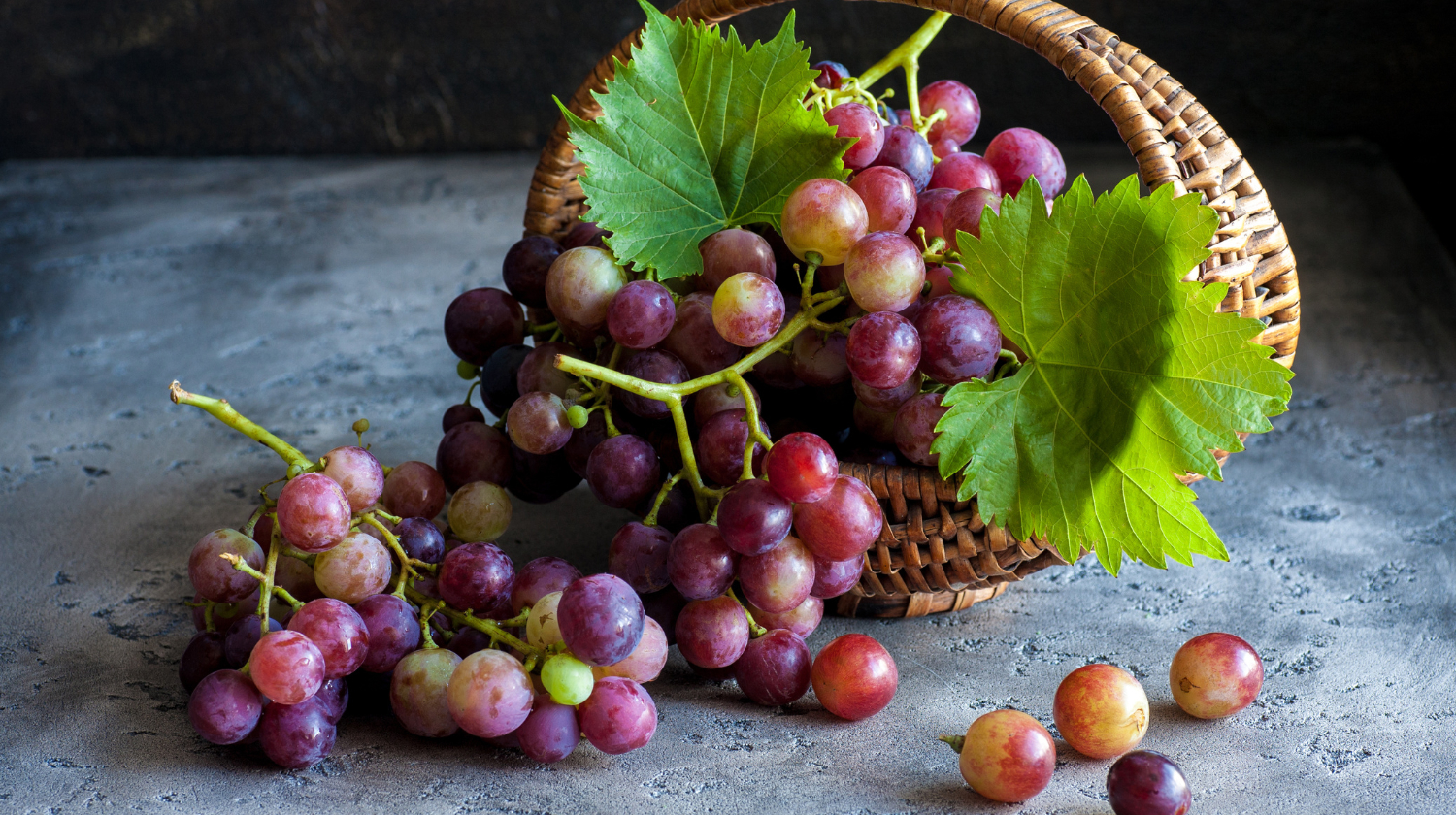Can You Eat Grapes While Pregnant? Safety, Benefits & Risks 2024

While pregnant, you may be even more cautious with foods and activities which you fear could negatively impact the growth of the baby. Women are advised to limit or avoid many foods, which can be a challenge.
Having a balanced diet will secure nutrients for a healthy pregnancy. With so much information out there, it’s hard to keep straight what is right or wrong for our bodies. Some fruits are advised to be avoided during pregnancy, like papaya, pineapple, and grapes, but often these warnings are based on cultural taboos and not real science. We wonder now, can grapes be eaten while pregnant?
Is It Safe For Pregnant Women To Eat Grapes?
Yes, it is safe to eat grapes while pregnant. As with all fruits and vegetables, they need to be cleaned thoroughly before consumption. Portion control is recommended if you suffer from diabetes or are experiencing high blood glucose levels.
Pregnant individuals are recommended to follow a balanced diet, rich in fruits and vegetables, lean proteins, eggs, low-fat dairy, whole grains, and other starches. Include a variety of fruits and vegetables in your diet. These, along with whole grains for fiber, can help prevent constipation, which many pregnant women experience.
Although a varied diet is essential, pregnant women must avoid or limit[1] the following foods:
- Raw or smoked fish.
- Fish high in mercury.
- Raw meat or poultry.
- Uncooked sprouts.
- Caffeine — less than 200 milligrams per day, from coffee, energy drinks, and sodas.
- Alcohol.
- Unpasteurized dairy or juices.
- Deli meats.
- Some soft cheeses.
- Unwashed fruits and vegetables.
Fruits and vegetables must be cleaned thoroughly before consumption. If not, it may pose a risk for bacterial infection like Escherichia coli.[2]
Fruits like grapes can be included in your diet in moderation. When choosing to consume fruit juice, choose pasteurized juice. Most commercially available grape juices are already pasteurized for general consumption. You can also eat dried fruits, which include dried grapes or raisins.
There is no inherent risk of eating grapes in their different forms during pregnancy. All varieties have different aspects of sweetness, texture, size, and color. You can even find green grapes with cotton candy flavor!
You may also be wondering if pregnant women can eat fruits like papaya and pineapple. These have, in certain cultures, traditionally been considered taboo, but in reality, there’s not enough scientific evidence to advise avoiding these fruits. Pregnant people may eat ripe papaya. Eating unripe papaya,[3] however, is not recommended since it contains latex which may cause uterine contractions, an undesirable side effect before term or fetal maturity.
Pineapple, on the other hand, is safe to eat. Ripe papaya and pineapple are some fruits that might be soothing to your stomach and are pretty tasty. This can be useful if you suffer from morning sickness. If you feel uneasy consuming these fruits, confirm with your medical provider or registered dietitian if these are safe for you to eat.
You can follow a dietary tool like My Plate[4] to help you plan meals and guide you to a healthy diet during pregnancy. During your pregnancy, make sure to eat at least 1 ½ to 2 cups of fruits every day.
Discuss with your medical doctor or pharmacists if you can eat grapefruit. This fruit may interact with some medications, like blood pressure medications, increasing their effects,[5] and resulting in hypotension.
Health Benefits Of Grapes For Pregnant Women
Grapes are a source of antioxidants, fiber, and natural sugars. As such, they offer protective health benefits for the body and the gut biome. Fiber is especially helpful with constipation and its sugars are a good source of energy.
Energy
Fruits are a source of carbohydrates in the form of sugar, which means they are a great source of energy for the body. The sugars are sucrose, fructose, and glucose.[6] A serving of grapes, half a cup, offers around 13.5 grams[7] of carbohydrates. This can be a sweet ending to your meal or a great afternoon pick-me-up snack.
Fresh grapes can be a refreshing treat when consumed cold or frozen. You can also slice them and add them to salads. Raisins, which are dried grapes, are rich in B vitamins and are an option. These are convenient and you can use them as a snack. Although juices are a quick source of energy, it is best to limit their consumption to half a cup each time and opt for fresh or dried fruit.
Antioxidant
Grapes are a source of antioxidants in the form of polyphenols.[8] These compounds are found in a variety of fruits and have antioxidant activity. Antioxidants protect the arteries and other tissues from oxidative damage, which helps prevent cardiovascular disease and the inflammation responsible for other chronic diseases.
The skin of grapes is particularly rich in phenolic compounds.[9] These have the potential to prevent cardiovascular disease.
Grapes also contain[7] beta-carotene, lutein, and vitamin C. These also offer antioxidant properties and also increase immunity.
Diabetes
Eating fruits in appropriate amounts during pregnancy may have a protective effect against the development of diabetes. In a 2021 study,[10] it was found that consuming fruits and vegetables in the right amounts may help prevent the development of gestational diabetes mellitus. However, it was also noted that excessive amounts increase the risk of GDM.
A 2022 study[11] explored the role of polyphenols, including resveratrol, in preventing complications during pregnancy, such as diabetes and pre-eclampsia, but this was inconclusive. Grapes can provide resveratrol, in safe quantities.
Cardiovascular
Grapes are a source of antioxidants that have the potential to help with lowering blood pressure, decreasing arterial damage, and decreasing the risk for cardiovascular disease. A small study[12] found eating whole red grapes helped decreased total cholesterol and low-density lipoprotein — bad cholesterol — in the subjects. This suggests that the consumption of red grapes, compared to white grapes, may be beneficial to aid in improving high blood lipids like cholesterol, especially when consumed whole.
Potential Side Effects
There are some possible negative effects when consuming large quantities of grapes related to their potential to increase blood glucose levels.
Fruits are a source of fructose,[13] a type of sugar. If a pregnant woman suffers from diabetes, at each meal she may need to avoid specific amounts of foods high in carbohydrates.
People with diabetes who want to eat grapes or raisins, or drink grape juice, should practice portion control. Avoid eating too many grapes or raisins at any single time, along with restraint with juices. If you are on insulin therapy to manage your GDM,[14] consult a registered dietitian for specific portions.
Grapes are a source of resveratrol.[15] This chemical compound is found in grapes and products made from grapes, like wine. Grape seeds and skin have the highest content of resveratrol. Muscadine grapes have the highest content among all grapes.
Resveratrol seems to be effective to promote weight loss and improve hay fever symptoms. While oral resveratrol supplementation is not recommended in pregnancy, small amounts of resveratrol from foods can be consumed safely.
Safety Precautions
Expectant mothers can eat grapes, in most forms, while pregnant. Make sure you clean all fruits and vegetables, before eating them.
The Centers for Disease Control recommends the following procedure:
- Wash your hands with soap and warm water for 20 seconds.
- Clean the fruits and vegetables of any dirt or debris under running water. Do not use soap or disinfectants. For harder produce like watermelon, use a vegetable brush.
- Dry with paper towels or a clean cloth to reduce bacteria.
It is not recommended for pregnant women to consume wine or any type of alcohol. This can result in the baby having fetal alcohol spectrum disorders.[16] Consumption of alcohol during pregnancy may cause miscarriage, stillbirth, and/or result in your child having physical, behavioral, and intellectual disabilities.
Final Thoughts
Pregnant women can and should include grapes in their daily diet. With so many precautions to secure the healthy growth of your baby, it is good to have one less thing to worry about. If you are an expectant mother, as long as you wash your grapes well and practice portion control, you can eat them safely.
Grapes are a convenient and tasty food. They are also a good source of vitamins and antioxidants that can potentially protect you from chronic diseases. Following a healthy and varied diet is always best to help your baby grow and support your well-being as a mother.
+ 16 sources
Health Canal avoids using tertiary references. We have strict sourcing guidelines and rely on peer-reviewed studies, academic researches from medical associations and institutions. To ensure the accuracy of articles in Health Canal, you can read more about the editorial process here
- editor (2020). Foods to Avoid When Pregnant. [online] American Pregnancy Association. Available at: https://americanpregnancy.org/healthy-pregnancy/pregnancy-health-wellness/foods-to-avoid-during-pregnancy/.
- World (2018). E. coli. [online] Who.int. Available at: https://www.who.int/news-room/fact-sheets/detail/e-coli.
- Adebiyi (2022). Papaya (Carica papaya) consumption is unsafe in pregnancy: fact or fable? Scientific evaluation of a common belief in some parts of Asia using a rat model. The British journal of nutrition, [online] 88(2). doi:10.1079/BJNBJN2002598.
- www.myplate.gov. (n.d.). Pregnancy | MyPlate. [online] Available at: https://www.myplate.gov/life-stages/pregnancy-and-breastfeeding.
- NHS Choices (2023). Common questions about nifedpine. [online] Available at: https://www.nhs.uk/medicines/nifedipine/common-questions-about-nifedpine/.
- Dowse, M. (2021). What sugars are in fruits and vegetables? [online] Sugarnutritionresource.org. Available at: https://www.sugarnutritionresource.org/news-articles/what-sugars-are-in-fruits-and-vegetables.
- Usda.gov. (2023). FoodData Central. [online] Available at: https://fdc.nal.usda.gov/fdc-app.html#/food-details/2344732/nutrients.
- Abbas, M., Saeed, F., Faqir Muhammad Anjum and Hafiz (2017). Natural Polyphenols: An Overview. [online] ResearchGate. Available at: https://www.researchgate.net/publication/308865014_Natural_Polyphenols_An_Overview.
- Sabra, A., Netticadan, T. and Wijekoon, C. (2021). Grape bioactive molecules, and the potential health benefits in reducing the risk of heart diseases. Food Chemistry: X, [online] 12, p.100149. doi:10.1016/j.fochx.2021.100149.
- Li, H., Xie, S., Zhang, X., Xia, Y., Zhang, Y. and Wang, L. (2021). Mid-pregnancy consumption of fruit, vegetable and fruit juice and the risk of gestational diabetes mellitus: A correlation study. Clinical Nutrition ESPEN, [online] 46, pp.505–509. doi:10.1016/j.clnesp.2021.08.033.
- Jorquera, G., Fornes, R., Cruz, G. and Thomas-Valdés, S. (2022). Association of Polyphenols Consumption with Risk for Gestational Diabetes Mellitus and Preeclampsia: A Systematic Review and Meta-Analysis. Antioxidants, [online] 11(11), p.2294. doi:10.3390/antiox11112294.
- Rahbar, A.R., Mahmoudabadi, M.M.S. and Islam, Md.S. (2015). Comparative effects of red and white grapes on oxidative markers and lipidemic parameters in adult hypercholesterolemic humans. Food & Function, [online] 6(6), pp.1992–1998. doi:10.1039/c5fo00100e.
- Dholariya, S.J. and Orrick, J.A. (2022). Biochemistry, Fructose Metabolism. [online] Nih.gov. Available at: https://www.ncbi.nlm.nih.gov/books/NBK576428/.
- Eatright.org. (2021). Understanding Diabetes. [online] Available at: https://www.eatright.org/health/health-conditions/diabetes/understanding-diabetes.
- Medlineplus.gov. (2021). Resveratrol: MedlinePlus Supplements. [online] Available at: https://medlineplus.gov/druginfo/natural/307.html.
- CDC (2022). Alcohol Use During Pregnancy. [online] Centers for Disease Control and Prevention. Available at: https://www.cdc.gov/ncbddd/fasd/alcohol-use.html.



